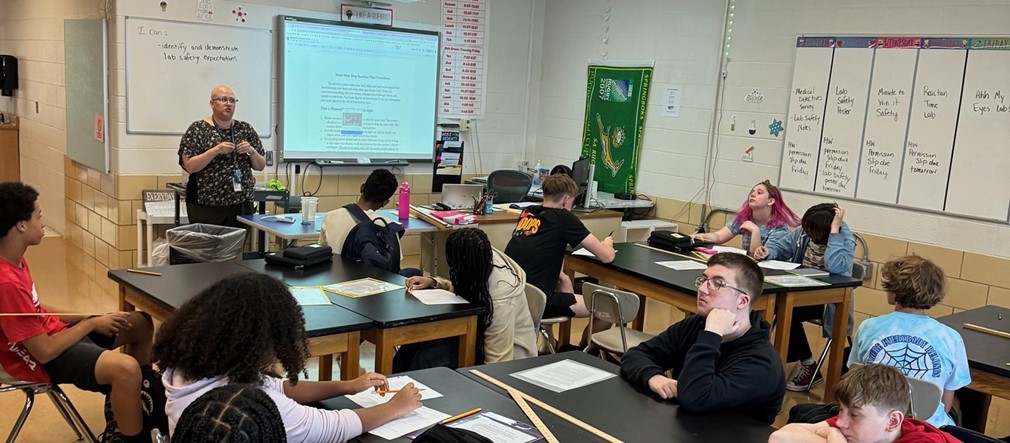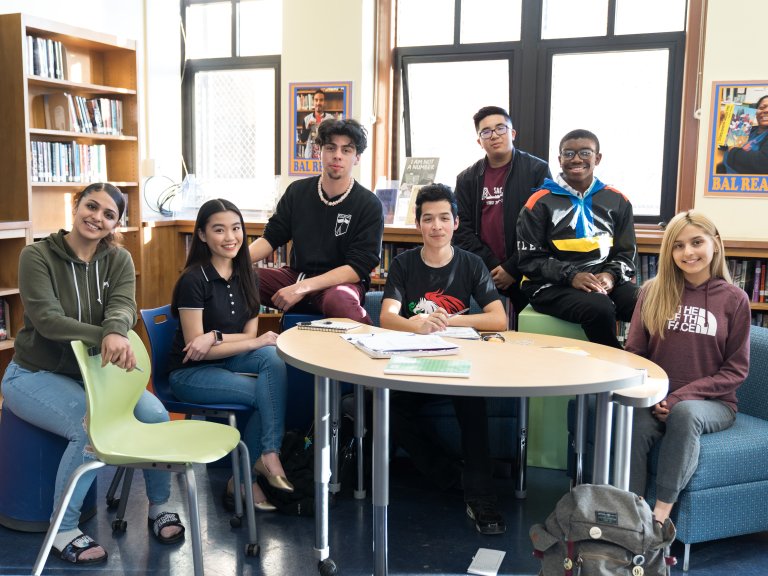Why It's Critical to Rally With Each Other to Save Temecula Schools
Wiki Article
Comprehending the Value of Colleges in Kid Growth and Community Development
Schools offer as essential institutions for youngster development and neighborhood development, offering environments where academic accomplishments are enhanced by the farming of social abilities and exposure to diverse viewpoints. These educational setups not only promote critical thinking and effective communication yet likewise foster empathy with joint projects. Furthermore, schools' interaction with regional communities through service-learning efforts enhances the bond in between family members and universities. This symbiotic connection highlights the value of colleges in supporting energetic citizenship and lifelong discovering routines. What are the specific systems by which these establishments attain such extensive influences?Academic Success
Academic accomplishment functions as a foundation of youngster advancement, supplying the structure whereupon future learning and success are built. Colleges play a pivotal duty in promoting this academic growth, providing organized atmospheres where children can acquire essential expertise and cognitive skills. Standardized curricula ensure that pupils gain efficiency in core topics such as mathematics, scientific research, and language arts, which are vital for both college and specialist chances.In addition to giving fundamental scholastic skills, colleges additionally cultivate critical reasoning, analytical capabilities, and intellectual inquisitiveness. These cognitive competencies are essential for navigating complicated real-world situations and adapting to the ever-evolving needs of the modern workplace. Teachers, as facilitators of understanding, utilize diverse instructional strategies to provide to diverse discovering styles, thus optimizing specific student possibility.
Furthermore, academic success is very closely linked to self-esteem and inspiration. Children that experience scholastic achievements are more probable to create a favorable self-concept and a lifelong passion for knowing. Colleges also provide various sources, such as libraries and modern technology, which better boost the educational experience and prepare pupils for a technically sophisticated society.
Social Skill Advancement
Beyond scholastic achievement, the function of colleges in social ability growth is indispensable. Schools offer as a key place for children to discover and exercise necessary social abilities such as cooperation, dispute, and communication resolution. In the organized atmosphere of a class, trainees communicate with peers, educators, and other college personnel, offering various opportunities to develop these critical abilities.Efficient social skill growth in schools is assisted in through team tasks, collective projects, and extracurricular programs. These communications assist students recognize social norms, build compassion, and foster a feeling of neighborhood. As an example, team tasks teach pupils exactly how to collaborate towards an usual goal, pay attention to different viewpoints, and browse disagreements constructively.

The growing of social abilities throughout school years lays a structure for future personal and expert partnerships. Save Temecula Schools. As students grow, the capability to properly communicate and team up becomes progressively essential, underscoring the school's important duty in all natural kid advancement
Direct Exposure to Variety
Exposure to variety in colleges is fundamental to promoting a comprehensive attitude and broadening trainees' viewpoints. Schools work as a microcosm of the more comprehensive culture, and encountering diverse societies, languages, and socioeconomic backgrounds within this environment gears up students with important abilities for browsing a significantly globalized globe. This direct exposure urges compassion, minimizes prejudices, and promotes common regard among peers.Research study shows that students who communicate with peers from varied histories exhibit far better analytical skills and creative thinking. This understanding of variety prepares pupils for future work environments that value multicultural capability - Save Temecula Schools.

Neighborhood Involvement
The benefits of varied classrooms extend past the college wall surfaces, fostering a solid sense of neighborhood interaction amongst pupils. By engaging with peers from numerous social, socioeconomic, and ethnic histories, trainees get a broader perspective and a gratitude for diversity. This direct exposure urges them to become energetic citizens who want to contribute favorably to their neighborhoods.Institutions that highlight area engagement frequently incorporate service-learning projects, which permit trainees to resolve real-world troubles while using academic abilities. These projects not just boost trainees' understanding of their coursework however likewise infuse a feeling of obligation and empathy. Moreover, collaborations in between colleges and regional organizations provide trainees with possibilities to get involved in neighborhood events, better strengthening their duty as positive community participants.
Additionally, parental and community involvement in colleges enhances the bond between educational institutions and the areas they offer. Through these initiatives, colleges play a critical function in supporting area engagement and fostering societal growth.
Lifelong Discovering Behaviors
Developing lifelong learning practices is necessary for a youngster's continual development and adaptability in an ever-changing world. Schools play a pivotal role in instilling these practices by creating an atmosphere that promotes interest, vital thinking, and a love for Recommended Site understanding. With extracurricular activities and varied educational programs, instructors urge trainees to check out different subjects, evaluate information seriously, and use their finding out to real-world circumstances.
Furthermore, schools supply an organized environment where kids can create self-discipline and time management skills, both of which are critical for continuous knowing. By stressing the relevance of establishing objectives, assessing progress, and adapting methods, instructional organizations prepare trainees to browse the intricacies of grown-up life, guaranteeing they stay long-lasting learners and contributors to society.
Conclusion
In final thought, institutions are necessary in cultivating child growth and neighborhood growth by supplying settings for academic success, social skill development, and exposure to variety. With collective jobs and communications, colleges enhance vital thinking, empathy, and interaction abilities. Community his comment is here involvement initiatives even more enhance the bond between local areas and academic establishments. Inevitably, colleges grow long-lasting discovering practices, outfitting individuals with the necessary understanding and skills to add favorably to society.In the structured environment of a class, pupils engage with peers, instructors, and various other institution personnel, supplying countless opportunities to develop these essential capacities.
In essence, direct exposure to diversity within schools not only enriches private pupils however likewise strengthens the social material of the area as a whole.
The benefits of diverse class expand beyond the institution walls, promoting a strong sense of community interaction amongst pupils.Institutions that emphasize neighborhood involvement often integrate service-learning jobs, which enable students to deal with real-world issues while applying academic skills. Partnerships between institutions and local companies give pupils with opportunities to get involved in area occasions, better solidifying their duty as positive neighborhood members.
Report this wiki page